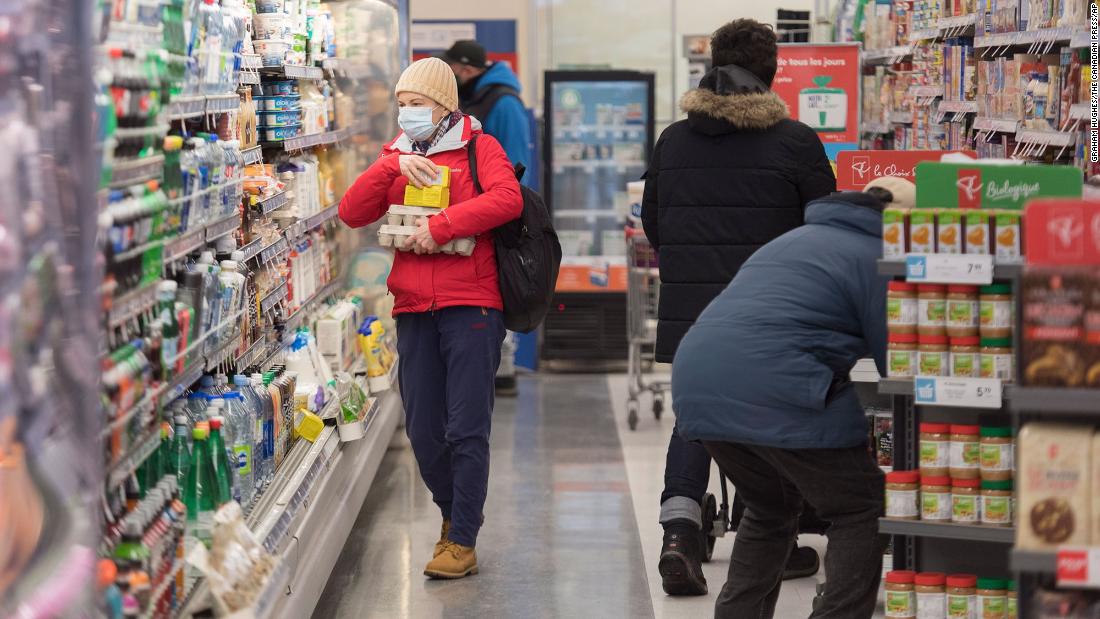“We are in a race against time,” said Premier François Legault, adding that Quebec is missing the race so far.
The 8:00 pm to 5:00 am curfew will take effect on Saturday. Restaurants, gyms, theaters and most retail stores will remain closed for at least four weeks. Legault calls this “shock therapy” which he hopes does not need to be extended.
Primary schools will reopen as planned next week, but more students will be required to wear masks. High schools will reopen on 18 January.
All Quebecers are being encouraged to stay at home and travel only if absolutely necessary. Those who fail to comply can face fines in the thousands of dollars.
“We are talking here about saving lives and saving our health care system,” said Legault.
For weeks, many health professionals have been pushing the Quebec government to close its doors after warning that its hospital system was failing.
“None of us want another hard block, but we are really in a very precarious situation right now,” said Dr. Marina Klein, director of research and infectious disease specialist at McGill University Health Center, in an interview with CNN.
For months, Quebec has seen a steady increase in new cases, hospitalizations and deaths from coronavirus.
Data from the Quebec Ministry of Health show that some 1,400 people are hospitalized with Covid-19, second only to the province of Ontario, with 76 new hospitalizations reported on Tuesday alone.
A Quebec health advisory group warned in December that Quebec could exhaust the hospital’s capacity by the end of January if hospitalizations continue to increase.
Klein says the partial restrictions that have been in place in Quebec since the fall have been ineffective against the spread of the virus.
“It is like a slow torture that we suffer, unlike the alternative solution, doing something that is very difficult, very difficult for a short period of time that is likely to be much more effective,” said Klein. She said health workers are exhausted and morale is low, as many have been exposed to the virus or are already infected.
Canada has faced a stubborn second wave of the virus, which is now getting more serious every day, according to public health officials.
“Covid-19 is spreading among people of all ages, with high rates of infection in all age groups. However, nationally, infection rates remain higher among those aged 80 and over who are at higher risk for serious results, “warned Dr. Theresa Tam, Canada’s director of public health, in a statement released on Wednesday.
“The downstream impacts of weeks and months of high disease activity continue to be seen in still increasing numbers of serious illnesses and deaths …”
Ontario, home to two out of five Canadians, is also facing an increase in hospitalizations, despite imposing its own blockade across the province on December 26. The Ontario government says it is watching Quebec carefully and considering tougher measures.
“I always say that everything is at stake, but let’s see where the numbers go,” Ontario’s Prime Minister Doug Ford told a news conference on Tuesday.
Legault says that companies and schools are not an important source of dissemination. Instead, private social gatherings inside the homes led to the crisis. He said that now a breaker-type lock was needed.
“My concern at the moment is that we are facing a possible introduction of an even more transmissible strain, which is now being seen in the UK and if that happened in an epidemic already out of control we have, we are talking about a situation that we have never seen “said Dr. Klein.
